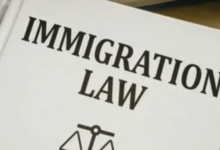The Challenges and Opportunities of Modern Immigration Policies

Modern immigration policies have become a complex and highly debated topic across the globe. As the world becomes increasingly interconnected, countries are grappling with the task of balancing security, economic growth, and human rights. Immigration policies shape the future of nations, influencing demographic trends, labor markets, and social cohesion. In this article, we’ll explore the multifaceted challenges and opportunities that modern immigration policies present to governments, migrants, and societies as a whole.
Historical Context of Immigration Policies
To understand the current landscape, it’s crucial to look at how immigration policies have evolved over time. Historically, countries developed immigration laws to manage population growth, control borders, and determine who could enter and become part of the society. In the 19th and early 20th centuries, policies were generally lenient, particularly in countries like the United States, Canada, and Australia, where immigration was seen as vital for economic development and territorial expansion.
However, two world wars, economic depression, and shifting political ideologies led to more restrictive policies in the mid-20th century. Countries began tightening borders, implementing quotas, and restricting certain groups from immigrating. Over time, these restrictions loosened and then fluctuated with economic cycles, security concerns, and public opinion.
Modern immigration policies are now a product of these historical shifts, combined with current global challenges like terrorism, climate change, and mass displacement of people due to conflict. These policies are shaped by various factors, including economic needs, national security, public opinion, and international relations.
Challenges of Modern Immigration Policies
1. Balancing National Security and Humanitarian Needs
One of the most significant challenges of modern immigration policies is the need to balance national security with humanitarian obligations. Governments have to protect their borders and ensure that migrants do not pose a threat to national security. However, strict security measures can conflict with humanitarian responsibilities, such as providing asylum to refugees fleeing war, persecution, or violence.
In recent years, the rise of terrorism and organized crime has made border control a priority for many nations. Policies have become more stringent, with increased background checks, biometric data collection, and surveillance at borders. While these measures are essential for ensuring security, they also complicate the immigration process for legitimate asylum seekers and those looking for better economic opportunities.
2. Economic Pressures
Immigration has a significant impact on both sending and receiving countries’ economies. For receiving nations, immigrants often fill labor shortages, contribute to innovation, and drive economic growth. For instance, highly skilled immigrants in industries such as technology and healthcare are critical for addressing labor gaps. On the other hand, some segments of the population fear that immigrants will take jobs from native workers or drive down wages, leading to economic inequality.
Moreover, the economic integration of immigrants poses challenges, especially when there is a skills mismatch. If migrants cannot find jobs that match their qualifications, they may face underemployment, which can lead to social and economic tensions within the host country.
3. Social Integration and Multiculturalism
The question of how to integrate immigrants into the social fabric of their new country is another significant challenge. Multiculturalism, while celebrated by many, can also lead to divisions if not managed effectively. Social integration involves helping immigrants adapt to the new culture, learn the local language, and participate in the host country’s economic and social life.
However, tensions can arise when different cultural values clash, or when native populations feel threatened by the growing diversity. In some cases, immigrants may face discrimination, xenophobia, or even violence, particularly during times of economic downturn or political instability. Governments must find ways to promote inclusion while respecting cultural diversity, a task that is easier said than done.
4. Political and Public Opinion
Immigration is often a polarizing issue in politics, with opinions varying widely across different groups. Political leaders may use immigration as a tool to rally support, sometimes fueling anti-immigrant sentiment to gain votes. This politicization of immigration policies can lead to harsher restrictions, even when they may not align with economic or humanitarian needs.
Public opinion plays a critical role in shaping immigration policies. In many cases, public fears—whether based on misinformation, economic anxieties, or cultural concerns—can push governments to adopt more restrictive immigration measures. On the flip side, there are also strong movements advocating for more inclusive policies that emphasize the benefits of immigration, such as economic growth, cultural diversity, and humanitarian responsibility.
5. Refugee Crises and Mass Migration
Recent years have seen an increase in mass migration due to conflict, persecution, and environmental factors like climate change. Countries are struggling to cope with large numbers of refugees and displaced persons. Managing these movements requires coordinated international efforts, which can be challenging due to differing national interests and policies.
For example, the Syrian refugee crisis and migration from Central America to the United States have placed immense pressure on both the migrants and the countries they seek to enter. Refugee camps often become overcrowded, and the asylum process can take years. Countries face the challenge of processing asylum claims while also managing domestic concerns about security and economic impact.
Opportunities in Modern Immigration Policies
1. Economic Growth and Innovation
While immigration presents challenges, it also offers significant opportunities, particularly in terms of economic growth and innovation. Many immigrants bring skills, education, and entrepreneurial spirit that can drive economic development in their host countries. In the tech sector, for example, immigrants have been instrumental in founding successful companies and bringing fresh perspectives to innovation.
In addition, low-skilled workers are often critical in sectors such as agriculture, construction, and healthcare. These workers fill gaps that local populations may be unable or unwilling to fill, ensuring the smooth functioning of essential services and industries.
2. Demographic Benefits
In many developed countries, birth rates have declined to the point where populations are aging, and there are not enough younger workers to support the economy. Immigration can help to address this demographic challenge by bringing in younger workers who can contribute to social security systems, care for the elderly, and keep the economy vibrant.
For instance, countries like Japan and Germany have started exploring more open immigration policies to counteract their declining populations. Allowing more immigrants to enter and settle can mitigate the economic consequences of an aging society.
3. Cultural Diversity and Globalization
Immigration brings cultural diversity, which can enrich societies in numerous ways. From food and music to art and language, immigrants contribute to the cultural mosaic of their new homes. This diversity fosters a greater understanding of different cultures, promoting tolerance and global citizenship.
Furthermore, in a globalized world, immigrants serve as important links between their home countries and the countries they migrate to. They facilitate international trade, investment, and diplomacy by creating transnational networks. This global perspective can benefit both the host country and the international community.
4. Humanitarian Leadership
Immigration policies that embrace humanitarian values offer an opportunity for countries to position themselves as global leaders in human rights. By accepting refugees and providing safe havens for those fleeing persecution, countries demonstrate their commitment to international solidarity and human dignity.
Canada, for example, has gained international praise for its relatively open refugee policies, which prioritize family reunification and humanitarian causes. Such policies enhance a nation’s global standing and can lead to stronger diplomatic relations with other countries.
5. Innovation in Policy-Making
The challenges posed by modern immigration have spurred innovation in policy-making. Countries are now experimenting with new approaches, such as points-based immigration systems, talent visas, and regional migration agreements. These innovations aim to create more flexible and adaptive immigration policies that can respond to changing economic and social conditions.
For instance, countries like Australia and Canada have implemented points-based systems that prioritize immigrants based on skills, education, and work experience. This allows these countries to attract high-skilled workers while managing their immigration flow more effectively. Similarly, regional migration agreements between countries help address cross-border migration issues in a more coordinated manner.
Striking a Balance: Future Prospects for Immigration Policies
Looking ahead, the future of immigration policies will likely involve a balancing act between openness and control. Governments must find ways to harness the benefits of immigration while addressing public concerns about security, economic impact, and social cohesion. This will require a nuanced approach that takes into account both short-term needs and long-term goals.
Technological advancements, such as artificial intelligence and data analytics, may also play a role in shaping the future of immigration policies. These tools could help streamline immigration processes, making it easier to screen applicants, monitor borders, and integrate immigrants into society.
At the same time, global cooperation will be essential in addressing large-scale migration challenges, such as climate-induced displacement and refugee crises. Multilateral agreements, international aid, and shared responsibilities will be key to managing the flow of migrants in a humane and effective way.
Conclusion
Modern immigration policies are a reflection of the complex interplay between national interests, economic needs, security concerns, and humanitarian values. While these policies present significant challenges, they also offer immense opportunities for economic growth, cultural enrichment, and international leadership. By embracing innovative solutions and fostering global cooperation, countries can create immigration systems that are both fair and forward-looking, ensuring a prosperous and inclusive future for all.



